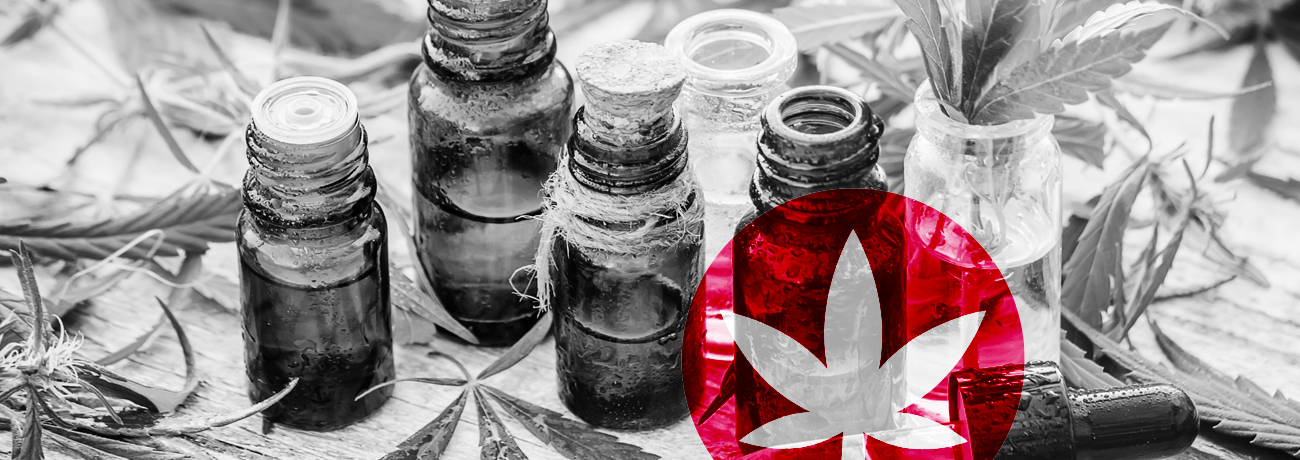Cannabidiol: Which Characteristics Should Every CBD Oil Have?
Last updated:
Published:

Shopping for CBD oil can be a challenge. Since there are so many products available in today's cannabidiol market, it's important to know what characteristics to look out for, especially if you want the highest quality oil that money can buy. Just because companies label their products as “safe” and “all-natural” doesn't mean that's what you're going to get. How the oil is made and what ingredients are contained within is how you know for sure that you're getting a product that will actually benefit you, not harm you. This article will inform you of precisely what attributes every CBD oil should have, so that you can soon begin enjoying all the incredible benefits that this groundbreaking cannabinoid has to offer.
TERPENES
Terpenes are hydrocarbons released by the same glands (trichomes) as THC and CBD. Although they don't produce any psychoactive effects, they do boost the therapeutic potential of CBD oil. Terpenes are also responsible for giving the oil its pungent aroma and satisfying taste. In addition to fighting off unwanted pests during the flowering period, while at the same time attracting pollinators, the combination of piney, earthy, and lemony flavours of terpenes provide the consumer with a delightful CBD experience.
CO₂ EXTRACT
One thing you don't want when it comes to CBD oil is a product loaded with synthetic chemicals; these toxic additives prevent the cannabinoids from doing their job. If you want the cleanest oil possible, you're going to want a product that's made using CO₂ extractions. The difference between CO₂ and butane extractions, for example, is that butane extracts aren't designed for human consumption. Not to mention, they give off quite an unpleasant taste and can leave toxic residue behind. With CO₂ extracts, the flavour will be a lot purer and more comfortable to ingest compared to other solvents.
DECARBOXYLATED
CBD oil may seem all the same. But in reality, not all products are created equal. Decarboxylation is the process of removing the carboxyl group by applying heat to hemp flowers over an extended period of time. As a result, the inactive compound CBDA is activated and then able to provide a broad range of potential benefits. When CBD oil is not decarboxylated, the product is often cheaper, and at the same time, less efficient. While it may seem like an attractive option when you're on a tight budget, you actually just wind up wasting your money when you decide to go with a cheaper product rather than one that is a bit more expensive. Nine times out of ten, it's the higher-priced product that's going to provide peak levels of CBD.
NATURAL INGREDIENTS
Everyone wants to get their hands on CBD oil. Because it's in such high demand, companies often try to speed up the production process with high-yield extractions. During this process, manufacturers will use synthetic fertilisers, pesticides, and herbicides. Although they all encourage growth, they also eliminate the therapeutic effects. These methods also destroy several of the present terpenes and flavonoids, which can result in unexpected outcomes after consumption. Choosing a product that consists of a rich phytocomplex of ingredients is paramount when selecting the safest, cleanest, and most effective products.
TEST REPORTS
Companies can promise quality CBD oil all day long. But if it hasn't undergone the proper testing, there's no way for the consumer to know if what they're ingesting is actually safe or not. Always be on the lookout for test reports. Both on-site and third party tests are crucial to ensuring quality. Manufacturers that take the time to confirm the materials they're using are free of bacteria, harmful contaminants, and artificial additives are more likely to provide you with accurate information on their bottles, and a better product to boot.
NO CBD CRYSTALS
CBD crystals, in particular, contain near-pure concentrations of CBD. However, they lack the therapeutic qualities that draw people to CBD oil in the first place. These supplements don't offer any of the other terpenes and cannabinoids that make CBD oils broadly effective. Whole plant oils, on the other hand, retain the entire cannabinoid and terpene spectrum of the cannabis plant (except for psychoactive THC), allowing all the naturally-occurring compounds to work together in synergy. This theory is known as the “entourage effect”, which argues that a diverse internal plant environment is key to the efficacy of CBD and other hemp-derived products.













